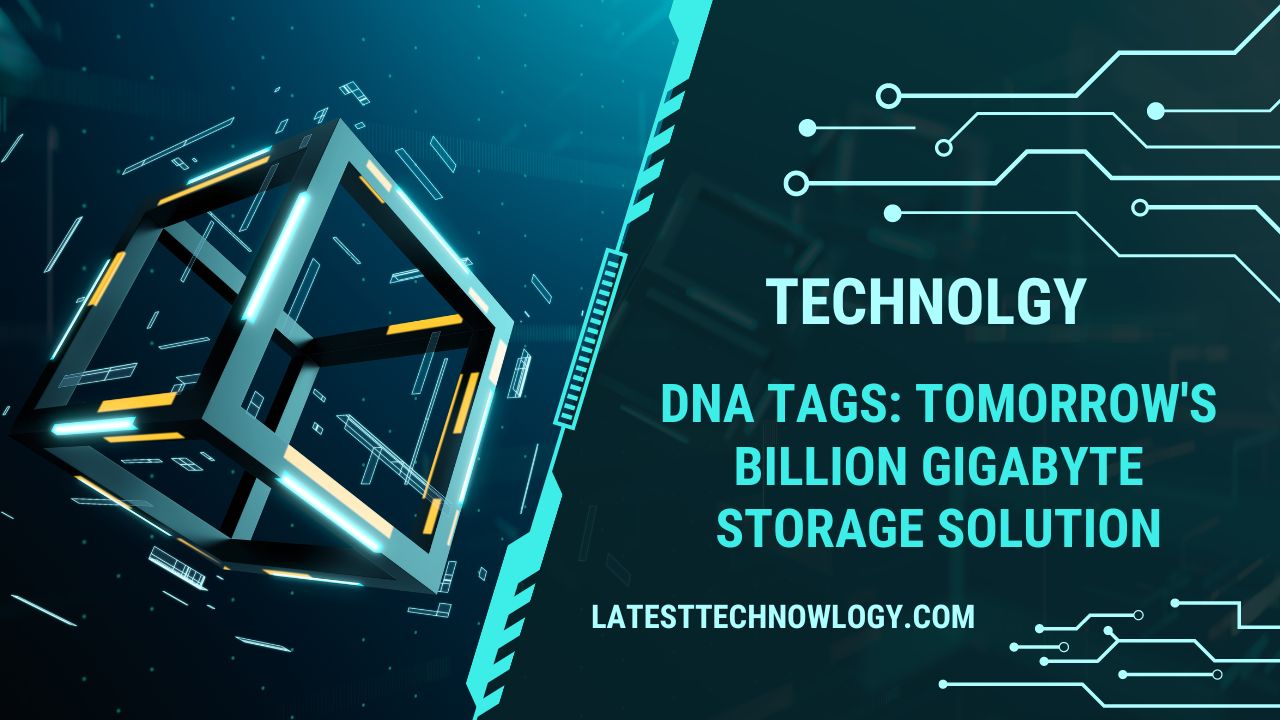Due to DNA’s capacity to store a great deal of information in a small space, researchers have focused on its as a data storage medium. Tomorrow’s Billion Gigabyte Storage Solution.
Nature demonstrates the long-term and space-saving storage of data through DNA. DNA chips for computer technology are being develop by the chair of bioinformatics at Würzburg.
DNA, the hereditary molecule, is well-known for its capacity to store a lot of information in a small space over a long period of time. For a decent decade, researchers have in this manner been seeking after the objective of creating DNA chips for PC innovation. Particularly for the long haul chronicling of information. In terms of storage density, longevity, and sustainability, such chips would be superior to conventional silicon-based chips. Tomorrow’s Billion Gigabyte Storage Solution.
A DNA strand is make up of four basic build blocks that are always present. Just like in nature, these blocks can be use to encode inform in a specific order. The corresponding code DNA needs to be synthesize and stabilize before a DNA chip can be construct. Researchers anticipate several thousand years of data preservation if this works as intend The sequence of the four fundamental building blocks can be automatically read out and decode to retrieve the data.
Data can be put away as DNA on chips make of semiconducting nanocellulose. The data is read by proteins controll by light. Credit: University of Würzburg, Chair of Bioinformatics
Issues with DNA Data Storage
Professor Thomas Dandekar, who is in charge of the Chair of Bioinformatics at Julius-Maximilians-Universität (JMU) Würzburg, states. “The fact that digital DNA data storage with high capacity and a long lifespan is possible has been demonstrate several times in recent years.” However, the DNA’s information cannot be retrieve quickly, and the storage costs are high—close to 400,000 US dollars per megabyte. Depending on the amount of data, it can take hours or days.
In order to increase DNA data storage’s marketability and applicability.These obstacles must be overcome. Reasonable devices for this are light-controll catalysts and protein network plan programming. Thomas Dandekar and his seat colleagues Aman Akash and Elena Bencurova examine this in a new survey in the diary Patterns in Biotechnology.
The group led by Dandekar is persuad that DNA has potential as a data store. The JMU researchers explain in the journal how systematic development and a combination of molecular biology, nanotechnology, novel polymers, electronics, and automation could make DNA data storage practical for everyday use in a few years.
Designing a novel DNA chip
At the JMU Biocentre, Dandekar’s group is creating DNA chips made of semiconducting, bacterially delivered nanocellulose. ” The professor asserts, “We can demonstrate, with our proof of concept, how molecular biological components can partially replace current electronics and computer technology.” A high storage density of up to one billion gigabytes per gram of DNA can be achieve, as well as sustainability, complete recyclability, and high robustness against electromagnetic pulses or power outages.
Tomorrow’s Billion Gigabyte Storage Solution
The creation of DNA chips is rate highly by Thomas Dandekar: We will only survive as a civilization in the long run if we adopt this novel sustainable computer technology that combines new polymer technology, electronics, and molecular biology.
He stated that transitioning to a circular economy that is in harmony with planetary boundaries and the environment is crucial for humanity. This must be accomplish within 20 to 30 years. Chip technology is a good example of this, but there aren’t yet any sustainable methods for making chips that don’t use e-waste or pollute the environment. Our nanocellulose chip idea makes a significant commitment to this. We critically examined our concept and developed it further in the new paper by incorporating recent research innovations.
Further developing DNA Stockpiling Media
The designer enzymes that Dandekar’s team have create are currently being combine with DNA chips make of semiconduct nanocellulose to make it even better. Additionally, the enzymes need to be enhance further.
“In this way, we want to better and better control the DNA storage medium, be able to store even more on it.Save money, and gradually make it possible to use it as a storage medium in everyday life,” the researchers wrote.
Tomorrow’s Billion Gigabyte Storage Solution
The Free State of Bavaria and the German Research Foundation (DFG) provide financial support for the described work. Sergey Shityakov, a professor at the State University of Information Technologies, Mechanics, and Optics (ITMO) in Saint Petersburg.Daniel Lopez, a PhD from the Universidad Autonoma de Madrid, and Dr. Günter Roth, a professor at the University of Freiburg.As well as BioCopy GmbH (Emmendingen), are significant collaborators.
